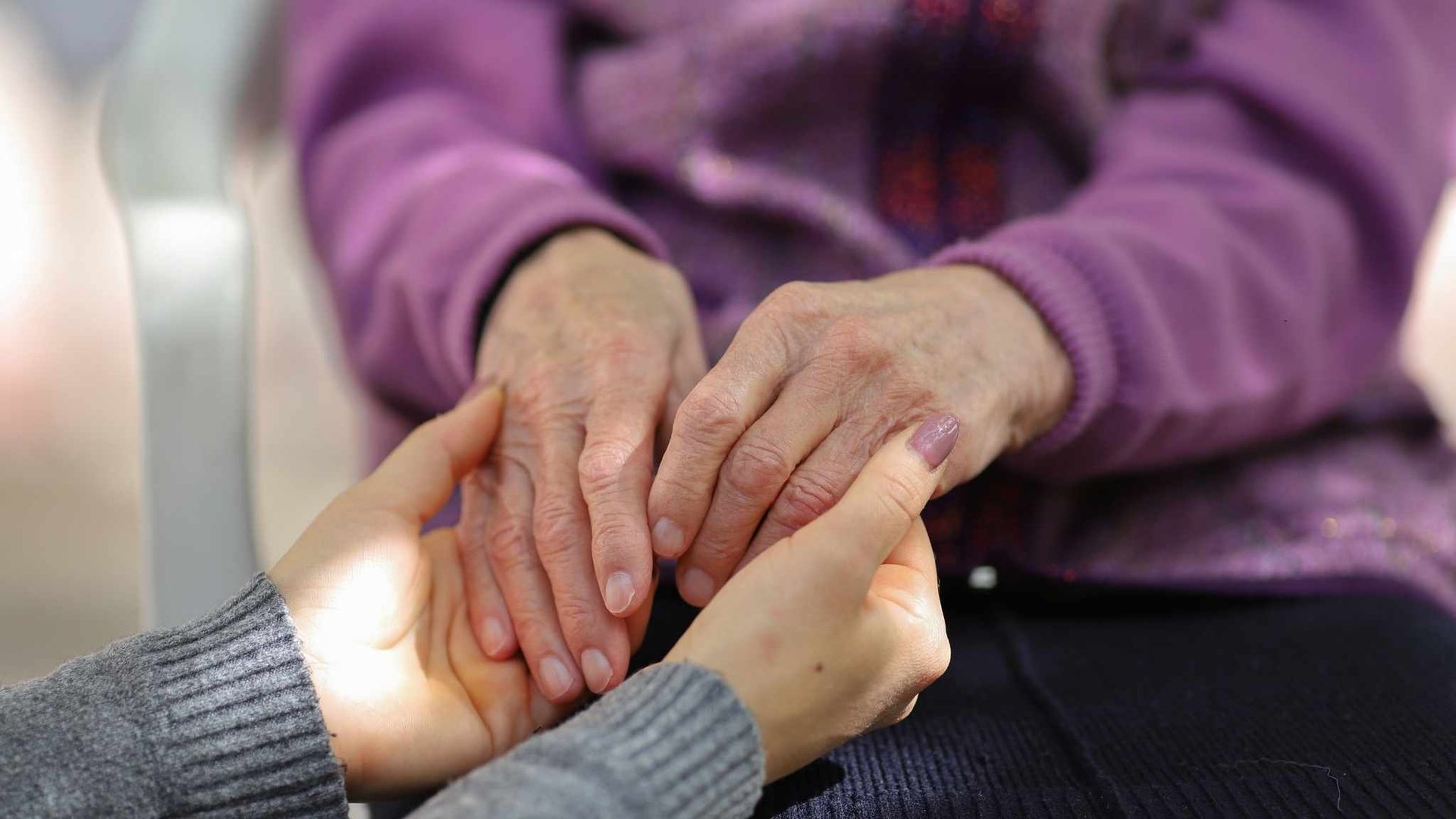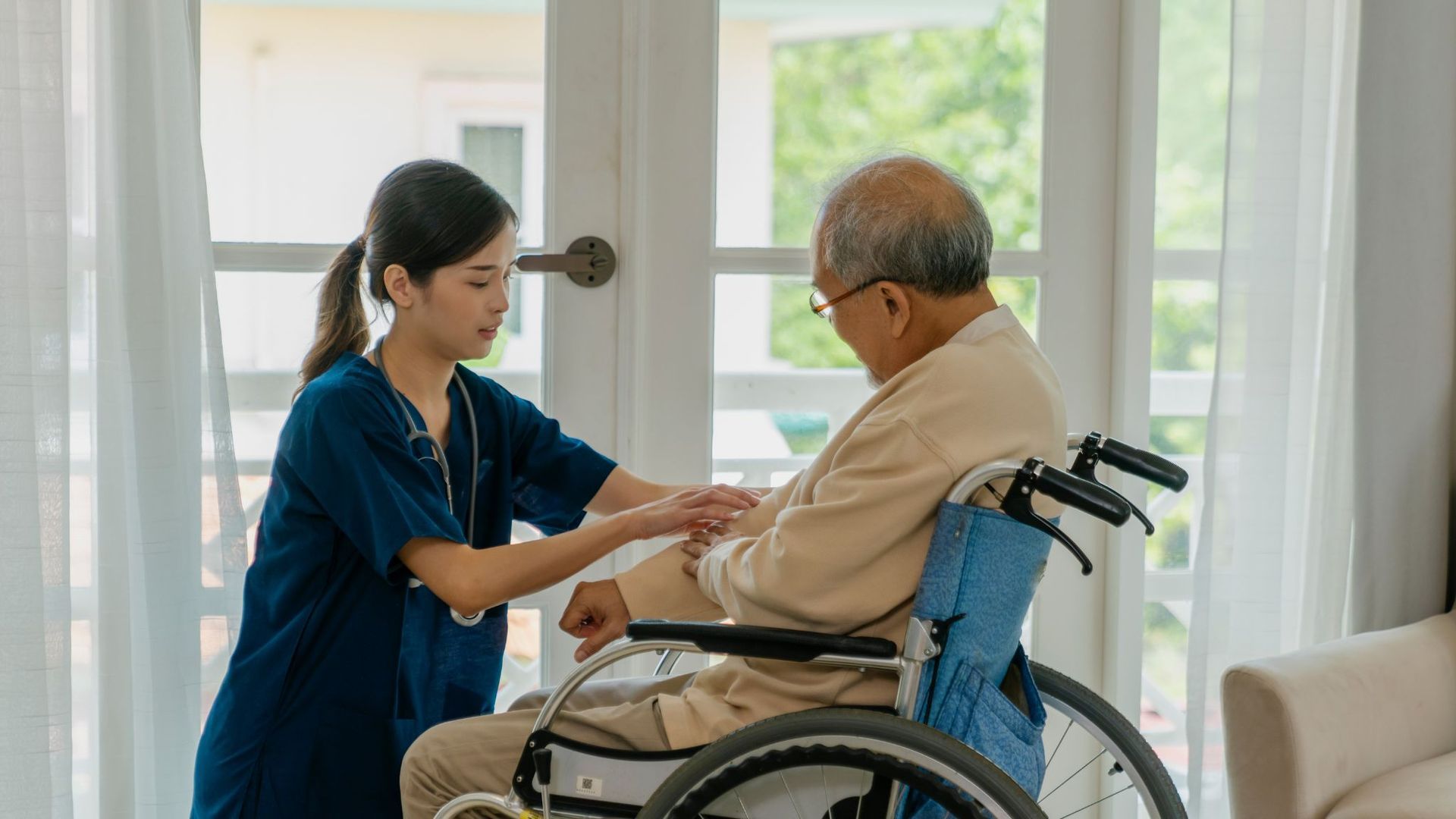What is a Hospice Nurse?
Knowing what a hospice nurse is means recognizing them as compassionate caregivers who stand by terminally ill patients and their families during the final stages of life.
These dedicated professionals ensure that patients are comfortable, manage their pain effectively, and address their emotional and spiritual needs. Hospice nurses play an important role in providing support and guidance, helping to make the end-of-life journey as peaceful and meaningful as possible for everyone involved.
What is the Role of the Hospice Nurse?
Unlike other typical nursing roles, hospice nurses focus more on enhancing a patient's quality of life. They offer heartfelt support to patients and their loved ones going through this difficult time together.
Here’s how they specifically help:
- They assess and manage symptoms and pain to ensure the patient is as comfortable as possible.
- They work with the interdisciplinary hospice team, including physicians, social workers, chaplains, and volunteers, to develop and implement a personalized care plan.
- They educate patients and families about what to expect during the dying process and how to provide care, making this difficult journey a bit easier to go through.
- They offer emotional and spiritual support to help patients and families cope with the end of life.
- They ensure that the patient's wishes and preferences are respected.
How Long Does It Take to Become a Hospice Nurse?
Becoming a hospice nurse typically takes about four to six years, depending on your chosen educational path and the required experience. Here’s a breakdown of the timeline:
- Associate Degree in Nursing (ADN) - 2 years
- Bachelor of Science in Nursing (BSN) - 4 years
- General Nursing Experience - 1 to 2 years
- Certification in Hospice and Palliative Care - Approximately 6 months
How Many Patients Should a Hospice Nurse Have?
A hospice nurse usually looks after 8-12 patients in a hospital or an inpatient hospice setting, 12-15 patients in home-based hospice care, and 15-20 patients when they are assigned to a long-term care facility.
However, the actual number of patients may change depending on the nurse’s experience, other team members' availability, and the patients' specific needs.
What are the Responsibilities of a Nurse for the Dying Patient?
Hospice nurses take on a wide range of responsibilities—assessing and managing physical symptoms like pain, nausea, and shortness of breath to keep patients comfortable, to start it off. They also administer medications and treatments for each patient's needs.
But their care goes far beyond physical symptoms—hospice nurses also provide emotional and spiritual support to both patients and their families.
Add to that, hospice nurses work closely with the interdisciplinary hospice team to address the patient’s needs and advocate for their wishes and preferences. Their ultimate goal is to create a peaceful and dignified environment for the patient’s final days, making the end-of-life journey as comfortable and meaningful as possible.
What is the Role of the Hospice Nurse in Providing Grief Support?
To truly understand what a hospice nurse is, it's important to see their role in offering grief support. Hospice nurses provide a compassionate presence, listening and helping patients and families process their grief.
Moreover, hospice nurses connect patients and their loved ones with additional resources, such as support groups or mental health professionals, to ensure they receive the support they need during this difficult time.
What is the Role of the Nurse After the Death of a Patient?
When your loved one passes away, a hospice nurse may still be there to provide support and help ensure that everything goes smoothly for your family. One of the first things they do is to confirm the passing and handle all necessary paperwork—which includes checking the vital signs to officially declare the time of death.
They can also assist with practical matters like contacting the funeral home and arranging for the transfer of your loved one’s body, ensuring all arrangements are handled with care and respect.
In the final moments before death, hospice nurses focus on keeping your loved one comfortable and addressing any signs of distress. They will educate you on what to expect, provide reassurance, and answer any questions you might have.
As death approaches, the nurse supports you and your family, whether you choose to be actively involved or prefer to keep some distance. The nurse respects your family’s wishes and provides comfort, ensuring your loved one’s preferences for end-of-life care are honored. This might include arranging for spiritual support or religious rites if you wish.
After your loved one has passed, the nurse continues to offer support by helping with post-mortem care. This might involve removing medical equipment and preparing your loved one for transport to the funeral home. The nurse will also help you remove any personal items from the patient and ensure that all actions are performed with the utmost dignity and respect.
Conclusion
Understanding what a hospice nurse is helps us see them as unsung heroes who dedicate their careers to providing comfort, support, and dignity to terminally ill patients and their families. Through their compassionate care, hospice nurses help patients manage pain and symptoms, find meaning in their final days, and experience a peaceful death surrounded by loved ones. If you are considering a career in nursing, hospice nursing is a rewarding and meaningful path that allows you to make a profound difference in the lives of others during their most vulnerable moments.
If you're thinking about hospice care, don't hesitate to reach out to us at Olympia Hospice Care. We're here to answer your questions and support you through every step, making sure your loved one gets the compassionate care they deserve.











